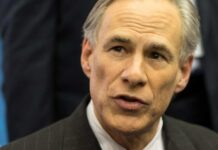
In a legal saga that seems to have no end, former President Donald Trump faces fierce opposition from special counsel Jack Smith, who vehemently rejects the Trump camp’s latest plea to disclose evidence in the classified documents case. The courtroom drama, however, reveals more than just legal intricacies; it exposes a battle for transparency and fairness in the face of a seemingly biased prosecution.
Smith’s resistance centers on the claim that revealing specific evidence could jeopardize the safety of potential witnesses. In a recent court filing on February 16, Smith asserted that the motion from Trump’s legal team was inconsistent with the agreed-upon process and would expose witnesses to “harassment, intimidation, and reprisal.” While emphasizing the risks, Smith maintains his stance against publicizing the discovery materials.
The crux lies in Trump’s desire to reference and quote specific documents, including an affidavit supporting a search warrant for Mar-a-Lago property manager Carlos De Oliveira’s email account. Smith, however, seeks to keep most of these documents hidden, raising concerns about potential harm to witnesses.
Trump’s team also aims to cite grand jury testimony regarding the thoroughness of the August 8, 2022, raid on Mar-a-Lago. Smith, in response, advocates for keeping the grand jury transcripts under seal, arguing for the protection of witnesses and the prevention of exposing others to sensitive information.
Furthermore, the clash extends to records produced by the U.S. Secret Service regarding the Mar-a-Lago search and an email exhibit featuring a floor plan of the estate. Smith opposes the public disclosure of these materials, highlighting their sensitive nature and potential risks.
Smith’s latest filing is just one episode in an ongoing battle over classified documents. Trump’s legal team argues that the prosecution’s insistence on secrecy raises questions about collusion between the prosecution and the Biden administration to target the former president.
Trump’s attorneys filed motions on January 16, urging Judge Aileen Cannon to compel discovery and unseal materials that the special counsel has kept under wraps. These motions include emails obtained through the Freedom of Information Act, shedding light on alleged biases within the National Archives and Records Administration (NARA) and the Office of the Director of National Intelligence (ODNI).
The defense contends that these sealed materials could expose collusion between senior officials at the White House, DOJ, and FBI, suggesting a coordinated effort against Trump. They argue for unsealing this information, asserting that court filings should be matters of public record.
President Trump himself, addressing the press on February 16, accused the prosecution and special counsel of attempting to undermine his presidential comeback bid. He pointed to the suppression of communications and alleged biased participation in the investigation.
In a tit-for-tat exchange, Trump’s legal team challenges Smith’s sealing requests, claiming they undermine the former president’s right to a fair trial. They argue that Smith’s team has taken unprecedented steps to generate biased press coverage, influencing public opinion against Trump’s presidential aspirations.
Smith, in response, supports transparency but opposes disclosure on the grounds of witness safety and the potential influence on the jury pool. The legal back-and-forth raises questions about the integrity of the case and the balance between transparency and protecting the interests of all parties involved.
The charges against Trump are severe, including alleged violations of the Espionage Act and willful retention of classified documents. The superseding indictment adds charges of conspiracy and obstructing justice, bringing the total to 40 counts. Trump vehemently denies all charges, labeling the entire case as the “box hoax” designed to thwart his return to the political arena.
The battle over classified documents is like a high-stakes poker game, where the cards are marked, and everyone’s trying to bluff their way to victory. It’s not just about legal maneuvering; it’s a test of principles, a clash of ideologies, a drama-filled episode of “Law and Order: Political Edition.”
The American public is on the edge of their seats, popcorn in hand, eagerly awaiting the resolution of a case that could determine the future of the nation’s political landscape. Will it be a blockbuster ending or another episode in the never-ending saga of political theatrics? Only time will tell, dear audience. Only time will tell.











